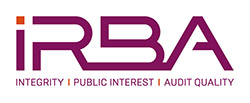EU and Global Regulatory Concerns
|
Starting in the early 2000s, high-profile business collapses around the globe such as Enron, WorldCom, Parmalat, Tyco International, Royal Dutch Shell, Siemens and others made auditors a focal point for governments and oversight structures. The massive collapses of Enron and Worldcom in the US were linked to fraud and poor accounting. Corruption and unethical accounting were uncovered in investigations when Arthur Andersen was discovered to have shredded Enron audit documents amid the investigations into the billions of losses at the energy firm. The accounting firm was subsequently found guilty of obstructing justice, effectively putting an end to all its audit activities in 2002, effectively reducing the big five to the big four. Given the devastating effects on workers and investors, there was a perceived need for an urgent federal response to protect investors. Legislative overhauls in the United States followed through the passing of the Sarbanes-Oxley Act (SOX) in 2002 and the establishment of the Public Company Accounting Oversight Board (PCAOB) to play closer attention to the role of auditors. The SOX passed through the House of Representatives and Senate quickly with overwhelming majorities in both houses. By the next major collapses in 2008 of Lehman Brothers and Washington Mutual which precipitated the global financial crises, governments and regulators around the world had already begun to respond. In March 2002, the Monetary Authority of Singapore (MAS) had issued an amendment to its Banking Act which required banks in Singapore to rotate audit firms every five years. However, with the advent of the global financial crisis in 2008, the MAS announced a temporary suspension of the requirement citing “heightened vigilance during this period of unprecedented stress in the global financial markets”. It was of the view that temporarily suspending the requirement for the three local banks would minimise disruption and deliver the benefit from some degree of audit continuity during challenging times. However, in September 2014, it launched a consultation process to revisit mandatory audit firm rotation and has recently announced that it will implement mandatory audit tendering every ten years with a staggered implementation requirement for years ending 2020 and 2022. The United Kingdom became concerned with the market concentration of its major listed entities with what was now the big four, and the European Union became concerned with long tenure and the risk of compromised independence. In October 2012 the FRC updated the Corporate Governance Code and introduced a new provision, on a comply or explain basis, requiring FTSE 350 companies to put their audit out to tender every ten years. This was amended in 2014 to bring it into line with the EU 8th Directive, and now in the UK the Statutory Auditors and Third Country Auditors Regulations 2016 (SATCAR), has introduced a requirement for all Public Interest Entities1 (PIEs) to conduct a tender at least every 10 years and rotate auditors after a maximum of 20 years. The European Parliament and the Council of the European Union issued in April 2014 ‘Directive 2014/56/EU amending Directive 2006/43/EC on statutory audits of annual accounts and consolidated accounts as well as Regulation (EU) No 537/2014 of the European Parliament and of the Council of 16 April 2014 on specific requirements regarding statutory audit of public-interest entities’. Member States were required to implement the new requirements by 17 June 2016, when the Directive and the Regulation became applicable (EuropeanUnion, 2014). The European Union adopted the current rules for statutory audit in April 2014. These aim to improve audits in the EU by reinforcing auditors' independence and their professional scepticism towards the management of the audited company. In the case of public interest entities (PIEs), for example, auditors will rotate on a regular basis and will no longer be allowed to provide certain non-audit services to their audit clients. PIEs are listed companies, credit institutions, insurance undertakings, or other undertakings designated by EU countries to be of public importance. These rules help to foster diversity in the audit markets and enhance investors' trust in the financial information of companies, which in turn improves the conditions for cross-border investment and economic growth in the EU. The progressive implementation of standards, regulations and guidelines is a necessary role of effective regulators worldwide in support of continuous improvement. Regulatory cooperation through the International Forum of Independent Audit Regulators (IFIAR) continues to attempt to address deficient behaviours, actions not in the public interest and guide effective standardised and harmonised auditing practices across world markets to facilitate global business. IFIAR has 52 members, who only qualify for membership if the regulator is truly independent of the profession. These regulators, of which the IRBA is one, have a common objective of protecting investors and their independence supports their aim to act in the public interest. In every jurisdiction, except Italy, the period for which MAFR has been implemented is too short to say empirically whether it works or not. In the IRBA’s review of G20 and IFIAR member countries, 30 have or will implement MAFR. The IRBA must respond to the current global developments and recent legislative measures that have been implemented in respect of strengthening auditor independence.
Relevant documents
|





